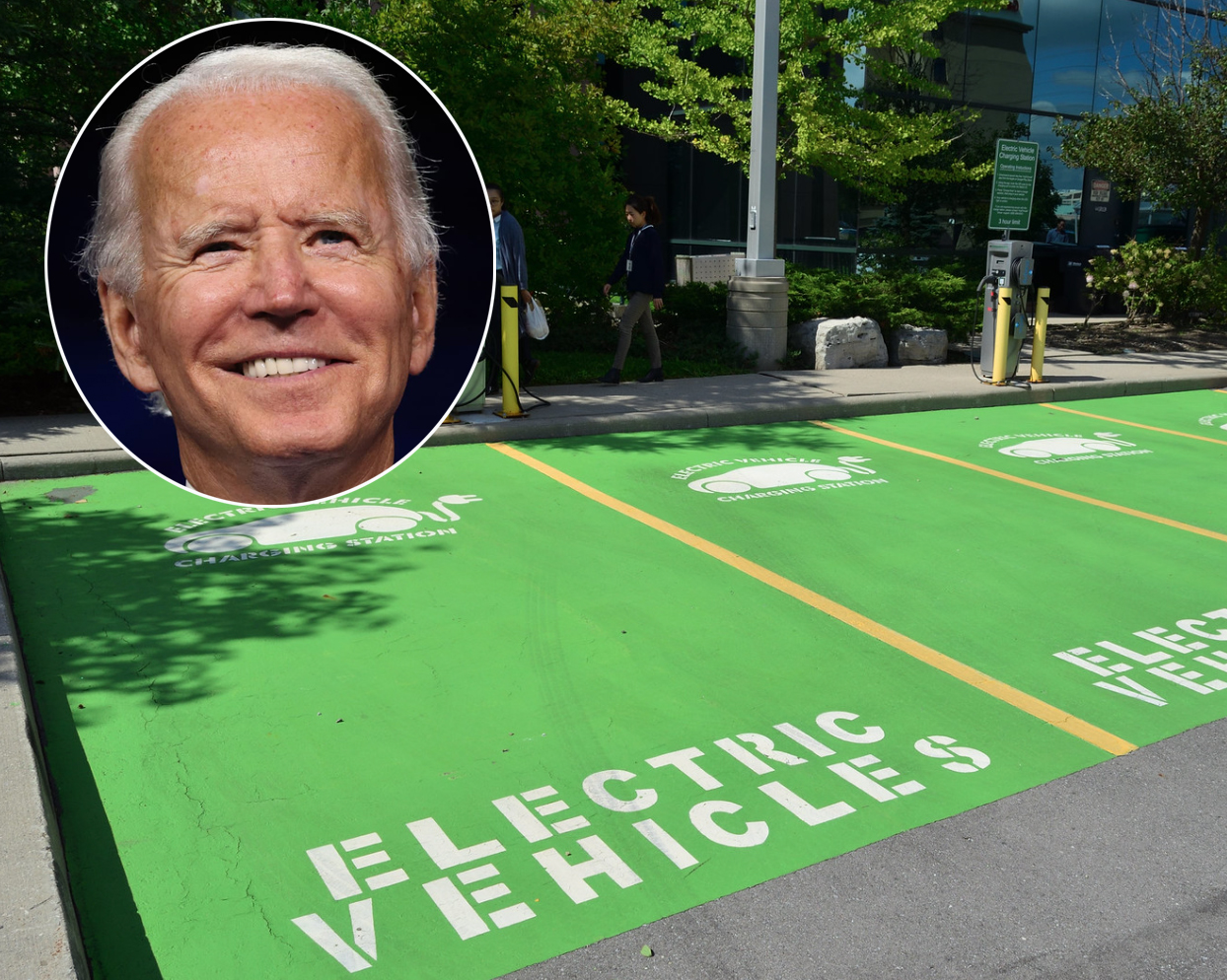The United States is charging ahead with cars.
The Biden administration put the pedal to the metal on its plan to ensure drivers of electric vehicles can get from sea to shining sea without worrying about running out of steam when it announced on Thursday its roadmap for building EV charging stations along the interstate highway system.
In doing so, the White House ensured that car culture will continue to help set the agenda on transportation policy after more than 70 years of misguided, deadly mistakes.
“A century ago, America ushered in the modern automotive era; now America must lead the electric vehicle revolution,” said US Transportation Secretary Pete Buttigieg. “The President’s Bipartisan Infrastructure Law will help us win the EV race by working with states, labor, and the private sector to deploy a historic nationwide charging network that will make EV charging accessible for more Americans.”
During a press conference outside federal Department of Transportation headquarters in Washington, Buttigieg cheered the $5-billion plan to build enough American-made charging stations installed along so-called “alternative fuel corridors” — basically, the interstates — lest drivers trade in road rage for “range anxiety,” the fear of a battery going dead before reaching a destination.
All told, the plan, combined with an upcoming $2.5-billion Discretionary Grant Program, calls for construction of 500,000 EV charging stations across the country that backers say will encourage drivers to switch to electric vehicles, which they say are ultimately less expensive to own and less destructive of the environment.
“Americans need to know that they can purchase an electric vehicle and find convenient charging stations when they are using Interstates and other major highways,” Deputy Federal Highway Administrator Stephanie Pollack said. “The new EV formula program will provide states with the resources they need to provide their residents with reliable access to an EV charging station as they travel.”
The plan will help cut down on the amount of greenhouse gases released by internal combustion engines as more Americans move to electric vehicles, but it will do nothing to decrease the carnage caused by car cashes, which killed more than 35,000 people in the U.S. in 2020. Electric cars also do nothing to reduce sprawl (and are said to actually increase it), nor do they solve the problem of car dependence, which is an equity issue.
The roll-out will be accomplished state by state, with each mini commonwealth asked to come up with a plan for planting the power-supply-stations across its interstates by Aug. 1. Once those plans are approved by the departments of Transportation and Energy, which are working jointly on the project, the money will begin flowing.
The amount of money each state can be guaranteed in the first 12 months of the program depends on the amount of infrastructure it needs along the corridors, with larger states such as Texas and California maxing out at $60 million and $56 million respectively, and smaller states such as Delaware and Hawaii (which, surprisingly, has an interstate highway) in the $2.5 million range.
Stations will need to be install about every 50 miles of interstate routes, within at least one mile of the highway, and will need to be able to service at least four vehicles at a time.
The plan was cheered by environmental organizations such as the National Resource Defense League, whose senior attorney said it shows President Biden is wasting time confronting global warming.
“This quick action demonstrates the priority the Biden administration is putting on building the vehicle charging infrastructure of the future,” said Max Baumhefner, whose group has been criticized for its enthusiasm for electric cars. “We have no time to lose, and the secretaries are making that clear in their actions today.”
Still, “Amtrak Joe” isn’t only thinking about cars. The infrastructure ask is also dedicating $39 billion to transit improvements including clearing up the backlog of necessary repairs, expand lines, and improve accessibility for people with disabilities.






